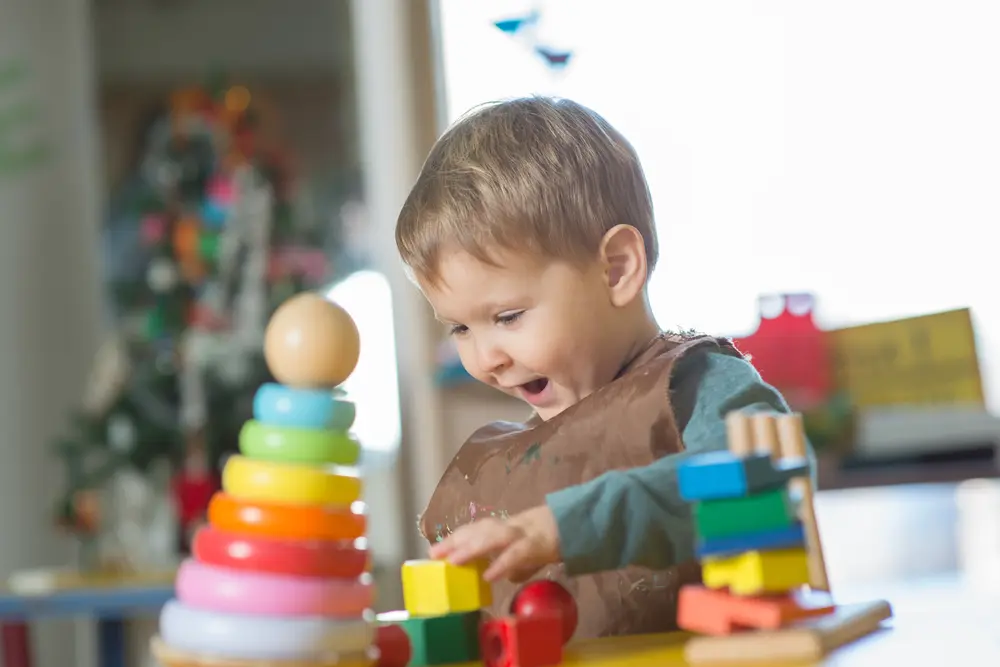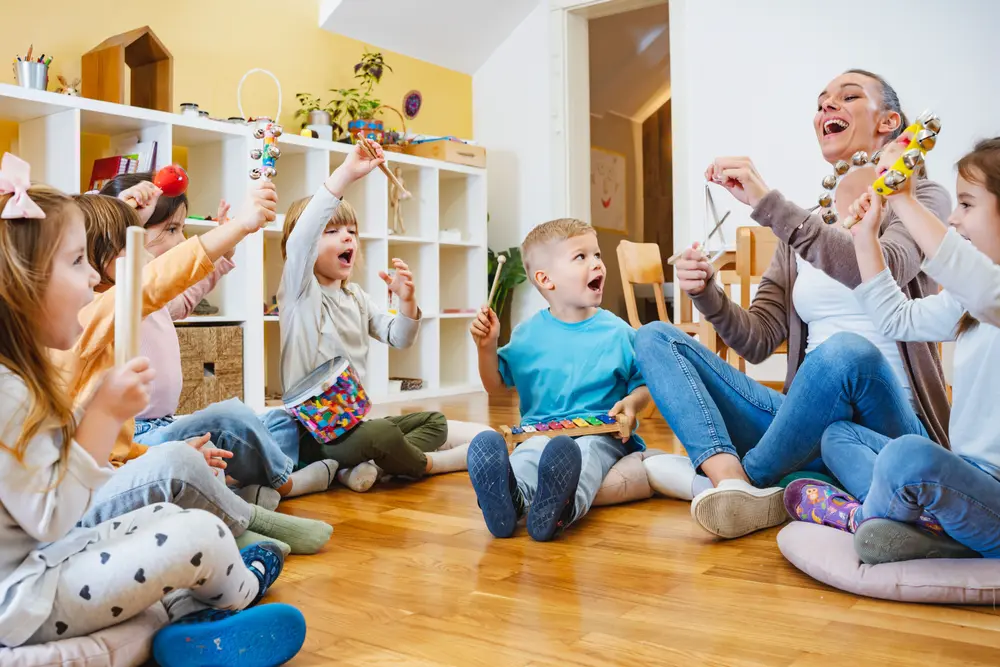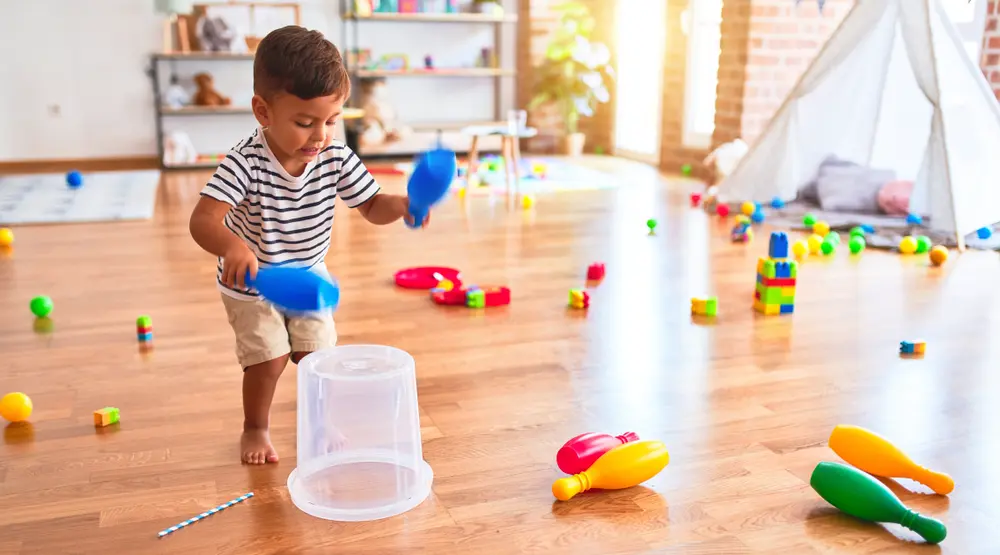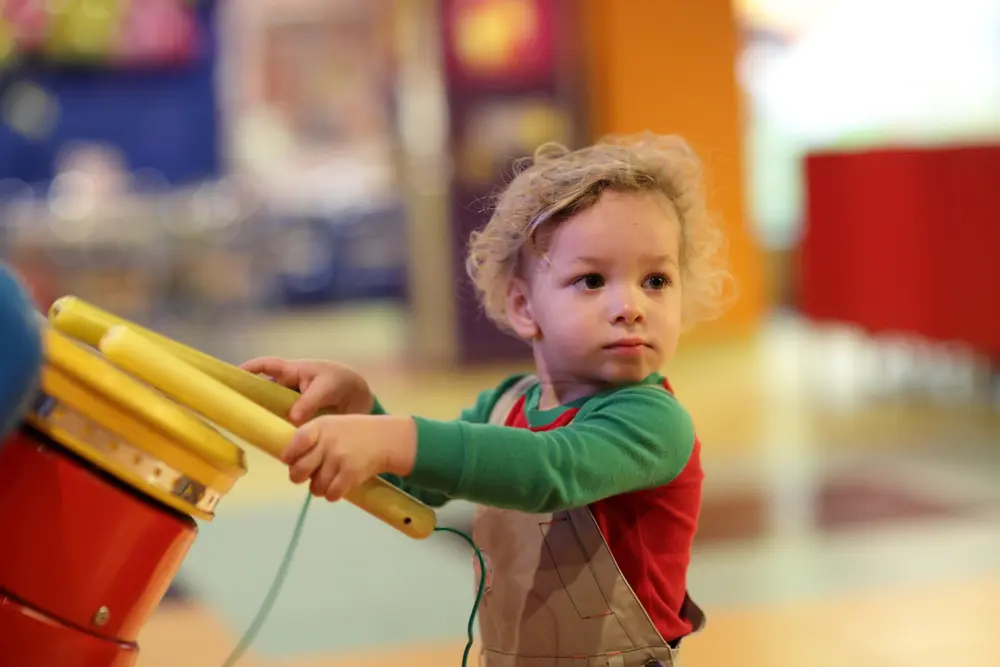As parents, we’re always looking for the best ways to nurture our children’s growth, and education is a huge part of that journey. With so many options out there—public schools, private schools, homeschooling—it’s easy to feel overwhelmed. One educational philosophy that’s gained a lot of attention over the years is Montessori. You’ve probably heard other moms talking about it or seen Montessori toys popping up in stores. But what exactly is Montessori, and how do you know if it’s the right fit for your child?
I found myself asking these same questions when my oldest was ready for preschool. Like many parents, I wanted to provide the best environment for them to thrive, so I took a closer look at Montessori and what it had to offer. It’s not a one-size-fits-all approach, and it has its pros and cons, depending on your child’s needs and your family’s values. Here’s what I discovered after diving into the Montessori method.
What Is Montessori, Anyway?

First, let’s break down what Montessori education is all about. Developed by Dr. Maria Montessori in the early 1900s, the Montessori method focuses on child-led learning. It emphasizes independence, hands-on learning, and respect for a child’s natural development. In a Montessori classroom, children are encouraged to explore their interests at their own pace, with teachers acting as guides rather than traditional instructors.
The Montessori environment is carefully prepared to meet the needs of the child. You won’t see rows of desks or a teacher lecturing at the front of the room. Instead, the classroom is full of activities and materials that children can choose from independently. Montessori education aims to foster a child’s natural curiosity and love for learning, rather than focusing on memorization or standardized testing.
Sounds amazing, right? But like any approach, it has its strengths and challenges. Let’s dive into the pros and cons every mom should consider before deciding if Montessori is the right fit for your child.
The Pros of Montessori Education

1. Fosters Independence
One of the biggest advantages of Montessori is the way it nurtures independence in children. From a young age, children are encouraged to take charge of their own learning and make choices based on their interests. In the classroom, they learn practical life skills, like pouring their own water or cleaning up after themselves, which translates into confidence and self-reliance outside of school.
I noticed this in my friend’s daughter, who attended a Montessori school. By age four, she was already packing her own backpack and putting on her shoes without help—something that amazed me!
2. Child-Centered Learning
Montessori classrooms are designed to meet the individual needs of each child, allowing them to learn at their own pace. If your child is passionate about a particular subject, they can dive deep into it without being held back by the rest of the class. On the flip side, if they need more time with a concept, there’s no rush to move on. This flexibility can be a game-changer for children who don’t thrive in traditional, one-size-fits-all environments.
3. Hands-On Learning
Montessori education is built around the idea of “learning by doing.” Instead of worksheets and textbooks, children use hands-on materials to explore subjects like math, language, and science. For example, instead of just learning numbers on a page, they might use beads to physically count and understand math concepts. This approach can be especially beneficial for children who are kinesthetic learners, or those who learn best through touch and movement.
4. Encourages Social Skills and Collaboration
In a Montessori classroom, children of different ages often learn together. Older children naturally take on leadership roles, helping younger ones with their tasks, while younger children learn by observing their peers. This mixed-age environment fosters a strong sense of community and collaboration. Children learn to communicate, share, and resolve conflicts in a supportive setting, skills that are valuable far beyond the classroom.
The Cons of Montessori Education

1. Lack of Structure Can Be Challenging
While the freedom to choose one’s activities is a key benefit of Montessori, it can also be a downside for some children. If your child thrives in a more structured environment or needs clear guidelines to stay focused, the Montessori method might feel too open-ended. Some children, especially those who struggle with self-regulation, may find it hard to stay on task without more direct instruction and structure.
2. Not the Right Fit for Every Learning Style
Montessori’s hands-on, child-led approach is great for many kids, but not all. Some children might prefer more direct instruction, especially in subjects like math or reading. For example, if your child needs a more guided, step-by-step approach to learning, Montessori’s self-paced method may not provide enough structure. It’s important to consider how your child learns best and whether they would thrive in an environment that requires a lot of self-motivation.
3. Limited Focus on Group Work
While Montessori encourages social interaction through mixed-age classrooms, the learning itself is often more individual than group-oriented. Children usually work alone on tasks, and there’s less emphasis on collaborative projects. If your child enjoys working in groups or learning through peer interaction, they might miss out on those experiences in a Montessori setting.
4. Cost and Accessibility
Unfortunately, Montessori schools can be expensive, especially if you’re looking at private options. While some public schools offer Montessori programs, they can be limited or have long waiting lists. Cost can be a major barrier for many families, and it’s worth considering whether Montessori education is financially viable for your family in the long term.
Is Montessori Right for Your Child?

Ultimately, whether Montessori is the right fit for your child depends on their personality, learning style, and what you’re looking for in their education. If your child is naturally curious, independent, and thrives in hands-on learning environments, Montessori could be a great match. It’s especially beneficial for kids who enjoy exploring subjects in depth and at their own pace.
On the other hand, if your child does better with clear instructions, structured lessons, or group-based activities, you might want to consider other educational options. It’s also important to remember that not all Montessori schools are the same—some may offer more structure or flexibility than others, so it’s always a good idea to visit the school and observe a class before making a decision.
My Thoughts
After exploring Montessori education and talking with other moms, I realized that every child is different, and there’s no one-size-fits-all solution when it comes to schooling. My friend’s daughter thrived in Montessori because she loved the freedom and hands-on approach. However, for my own child, who needed more structured guidance, a different learning environment worked better.
In the end, the most important thing is finding a school that aligns with your child’s needs and your family’s values. Montessori is an incredible option for many families, and it’s worth exploring if you think your child would benefit from a more flexible, child-led learning experience.
What about you? Have you considered Montessori for your child, or are you already a Montessori mom? I’d love to hear about your experiences in the comments!

